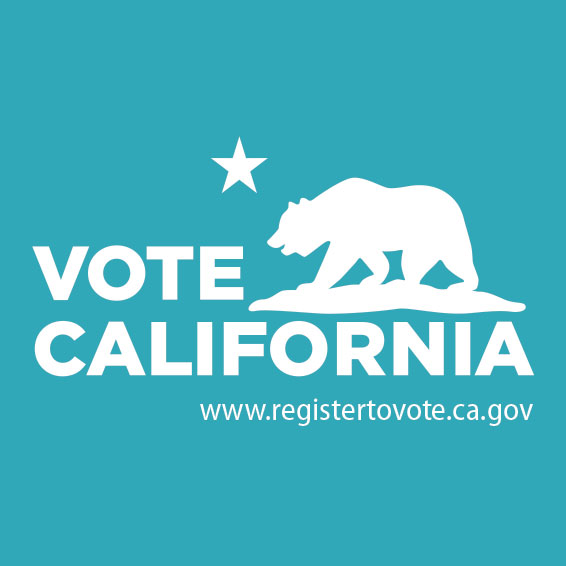Leadership Competency Model
Leadership Competencies

Lead your team with increased competency proficiency.
In an effort to better align with the State’s leadership initiatives, the CalHR Leadership Competencies have been updated as of 10/05/2023 and will be effective starting 01/01/2024.
Business Acumen
Understands and demonstrates sound judgment, fiscal competence, and organizational business knowledge to optimize the quality of operations and services.
Key Skills
Financial Management | Organizational & Business Knowledge | Sound Judgement | Governance
Proficiency Level Behavior Indicators:
Financial Management
Level 1: Novice
Adheres to all financial and budgetary rules and procedures.
Level 2: Basic
Demonstrates the ability to read, interpret, and use budgets and projections to execute financially related activities.
Level 3: Intermediate
Works with others to generate and manage financial allocations in support of strategic priorities after having analyzed their impact on the organization and with a demonstrable awareness of opportunity costs.
Level 4: Advanced
Guides others in financial decision making and management regarding the expenditure of resources consistent with strategic initiatives and with a full understanding of opportunity costs and risk awareness.
Level 5: Expert
Establishes systems to monitor expenditures, financial processes, and risk management within the organization to ensure that financial resources are effectively allocated to achieve goals and objectives.
Organizational & Business Knowledge
Level 1: Novice
Identifies the organization's core business and customers.
Level 2: Basic
Clearly describes the division's and organization's core business and customers.
Level 3: Intermediate
Demonstrates a comprehensive understanding of the division's and organization's business, customers, and processes.
Level 4: Advanced
Utilizes data and key metrics to further enhance the organization's ability to reach its goals. Promotes and encourages an understanding of business processes and customer impact.
Level 5: Expert
Sets an expectation for enterprise-wide understanding of the organization by ensuring a shared knowledge of the business, its objectives, processes, and stakeholder impact.
Sound Judgement
Level 1: Novice
Demonstrates an awareness that decisions must be made based on evidence rather than on gut-checks or intuition alone.
Level 2: Basic
Makes timely, informed decisions that take into account available data-driven facts, objectives, and risks associated with the issue at hand.
Level 3: Intermediate
Can interpret data, and makes timely, informed decisions that account for data-driven facts, objectives, and risks, even with difficult issues, and can explain the decision-making rationale.
Level 4: Advanced
Makes timely independent or team-led decisions based on available sound data, seasoned analysis, and knowledge of the role of unconscious bias in the decision-making process.
Level 5: Expert
Promotes a workforce environment that values independent or team-led decision making, based on empirical evidence and seasoned analysis, with clear efforts to eliminate the effects of unconscious bias and other impediments of good judgment.
Governance
Level 1: Novice
Shows a curiosity and willingness to learn the business fundamentals of California state government.
Level 2: Basic
Understands business fundamentals of California state government.
Level 3: Intermediate
Identifies the role of labor relations in California state government.
Level 4: Advanced
Distinguishes between the different types of labor relations components in California state government.
Level 5: Expert
Creates an organizational culture that ensures consistent application of labor relations processes and maintains positive labor relations.
Inspirational Leadership
Energizes and creates a sense of direction, purpose, excitement, and momentum for the organization’s mission. Creates a positive work environment offering clarity around goals and objectives and ensuring that those who are led work collaboratively to achieve results.
Key Skills:
Mission Centric | Active Engagement | Outcome Focused | Develops & Empowers
Proficiency Level Behavior Indicators:
Mission Centric
Level 1: Novice
Understands the importance of job duties and expectations related to the mission.
Level 2: Basic
Gains clarity of job duties and expectations and provides input to ensure alignment with mission.
Level 3: Intermediate
Provides clarity of job duties and expectations, provides timely and constructive feedback to team members and ensures alignment with mission.
Level 4: Advanced
Sets clear expectations, provides timely and constructive feedback, and collaborates to determine mission-driven outcomes.
Level 5: Expert
Creates a climate where everyone knows their purpose and their role in achieving mission-, vision-, and values-driven outcomes.
Active Engagement
Level 1: Novice
Aware of the importance of their role in the organization.
Level 2: Basic
Seeks ways to be positively involved in the day-to-day work and organizational activities.
Level 3: Intermediate
Involves others in designing and executing the process by which the day-to-day work gets completed and removes barriers to increase effectiveness.
Level 4: Advanced
Generates excitement, enthusiasm, and commitment in people by translating the organization’s mission, vision, and values into terms that are relevant to the work performed.
Level 5: Expert
Fosters a culture that promotes employee engagement through regular communication and interaction, inclusion, and belonging.
Outcome Focused
Level 1: Novice
Realizes that personal actions and quality of work impact the workplace.
Level 2: Basic
Promotes the use of respect, recognition, and praise.
Level 3: Intermediate
Champions the use of respect, recognition, and praise within the team and unit and directly identifies and addresses morale problems.
Level 4: Advanced
Creates an environment that promotes teamwork, respect, and collaboration to resolve issues.
Level 5: Expert
Demonstrates commitment to and alignment with the organization's vision, mission, and values by promoting them regularly and encourages ongoing collaboration throughout the organization.
Develops & Empowers
Level 1: Novice
Recognizes the importance of development in a professional workplace.
Level 2: Basic
Takes ownership and accountability of work contributions and self-development.
Level 3: Intermediate
Inspires others to act and to continuously seek to learn.
Level 4: Advanced
Inspires others to grow and provides resources for staff development on a continual basis.
Level 5: Expert
Champions a culture of learning, continual development, and empowerment.
Results-Oriented
Focuses efforts to efficiently achieve measurable and customer-driven results consistent with the organization’s mission, goals, and objectives.
Key Skills:
Decisiveness | Measures Organizational Results | Process Improvement | Negotiation
Proficiency Level Behavior Indicators:
Decisiveness
Level 1: Novice
Recognizes the importance of using available information to make an informed decision.
Level 2: Basic
Uses information and resources to make timely and informed decisions that are specific, measurable, achievable, relevant, and time-bound.
Level 3: Intermediate
Empowers their team to use the information and resources available to make decisions that drive results.
Level 4: Advanced
Assumes responsibility for decisions made. Shares outcomes with others in the organization and communicates the concept that indecisiveness can also have serious consequences.
Level 5: Expert
Creates an environment that embraces informed and timely decision making that considers innovative solutions to move the organization forward. Understands the importance of tomorrow’s goals in the context of today's priorities.
Measures Organizational Results
Level 1: Novice
States assigned goals and takes personal responsibility for results.
Level 2: Basic
Demonstrates an understanding of the goals associated with their job and can make adjustments to meet results-oriented objectives.
Level 3: Intermediate
Translates objectives into specific measurable metrics and can articulate the approach necessary to achieve key performance indicators (KPIs.)
Level 4: Advanced
Establishes priorities when there are conflicting goals or due dates. Ensures assignments are in alignment with organizational metrics and measures and monitors the outputs of teams.
Level 5: Expert
Supports the process of defining metrics, monitors progress and outcomes by ensuring that the objectives and key results are effective, demonstrates knowledge about the organization's metrics, and shares the knowledge of them and progress with the stakeholders.
Process Improvement
Level 1: Novice
Displays an awareness of the concept of waste and seeks ways to more efficiently perform their work.
Level 2: Basic
Participates as an effective team member in continuous improvement efforts.
Level 3: Intermediate
Searches for ways to identify root causes of workplace issues, eliminate waste, and improve quality of work products.
Level 4: Advanced
Sets improvement and efficiency goals (in conjunction with teams) that assure an ongoing process of identifying the root causes of workplace inefficiencies, eliminate waste, and improve quality.
Level 5: Expert
Encourages and supports enterprise-wide innovation, ideas, and approaches to uncover the root causes of workplace inefficiencies. Identify and eliminate waste and continually improve services and other deliverables.
Negotiation
Level 1: Novice
Uses negotiation and mediation skills.
Level 2: Basic
Presents alternatives that address others’ most important concerns and looks for win-win solutions.
Level 3: Intermediate
Negotiates with a team of managers or employees across agencies to address mutual issues and concerns (exemplifies emotional intelligence).
Level 4: Advanced
Negotiates with key stakeholders by sharing information and resources across multiple levels to accomplish objectives.
Level 5: Expert
Develops, publicizes, and negotiates support for programs and policies by meeting with key officials, executives, union, employees, and other interested parties.
Stewardship
Focuses on being responsible and accountable for managing resources well, choosing to use influence to serve the long-term collective good of the public. Places public interests above self-interests and focuses on the larger purpose or mission of the organization.
Key Skills:
Social & Environmental Awareness | Resource Management | Organizational Knowledge | Public Trust
Proficiency Level Behavior Indicators:
Social & Environmental Awareness
Level 1: Novice
Recognizes they work in a complex environment.
Level 2: Basic
Discerns broader implications that affect their unit and how their contributions can impact the environment.
Level 3: Intermediate
Understands and explains the broader environment and competing influences and demands.
Level 4: Advanced
Influences the broader environment and aligns organizational objectives and practices with public interest.
Level 5: Expert
Navigates external influences to set the organization’s broader environment.
Resource Management
Level 1: Novice
Identifies and appropriately uses and maintains department resources.
Level 2: Basic
Assesses resource needs in varying situations and determines the best use of resources.
Level 3: Intermediate
Maximizes efficient use of resources.
Level 4: Advanced
Determines resource allocation across multiple programs with varied resource needs for maximum organizational impact.
Level 5: Expert
Advocates for resources and maintains fiscal responsibility.
Organizational Knowledge
Level 1: Novice
Understands the mission of the organization and seeks additional knowledge to support their role.
Level 2: Basic
Captures and applies organizational knowledge to ensure continuity and service delivery that supports the mission.
Level 3: Intermediate
Validates that organizational knowledge is accurately documented and shares with others.
Level 4: Advanced
Ensures a system is in place to track and utilize organizational knowledge to support the mission.
Level 5: Expert
Creates accountability for clear standards of work and fosters an environment where knowledge transfer occurs regularly.
Public Trust
Level 1: Novice
Understands responsibility for placing public interests above self-interests.
Level 2: Basic
Demonstrates commitment to placing public interests above self-interests.
Level 3: Intermediate
Sets team expectations to place public interests above self-interests.
Level 4: Advanced
Monitors and ensures accountability to place public interests above self-interests.
Level 5: Expert
Fosters an environment where stewardship of the public trust is the standard.
Talent Management
Recruits, selects, and develops effectively to retain world-class staff.
Key Skills:
Train, Develop, Coach | Recognition | Workforce Planning | Recruitment & Selection
Proficiency Level Behavior Indicators:
Train, Develop, Coach
Level 1: Novice
Recognizes the importance of professional development and willingly accepts coaching from immediate supervisor.
Level 2: Basic
Demonstrates the importance of professional development by seeking out coaching and mentoring opportunities.
Level 3: Intermediate
Provides coaching and mentoring to their team and demonstrates openness to being coached and mentored.
Level 4: Advanced
Provides and promotes coaching and mentoring across levels and creates opportunities for employee development.
Level 5: Expert
Builds an environment where coaching and mentoring are embedded in the organizational culture with a strong commitment to grow and develop people.
Recognition
Level 1: Novice
Knows the value of saying thank you and shows gratitude to individuals who support them.
Level 2: Basic
Expresses authentic gratitude and understands its value.
Level 3: Intermediate
Acknowledges contributions and shows formal appreciation through division and department-wide recognition.
Level 4: Advanced
Supports informal and formal recognition programs and uses these practices to motivate employees.
Level 5: Expert
Champions formal and informal recognition programs and is a role model by personally attending events highlighting their employee’s success.
Workforce Planning
Level 1: Novice
Understands delegated assignments are opportunities for self-development and team success. Recognizes the value of their role as a member of a team.
Level 2: Basic
Embraces delegated assignments and seeks opportunities for growth. Identifies workforce profile, analyzes staffing needs, identifies gaps in workforce composition and supply, develops and recommends strategy to address gaps.
Level 3: Intermediate
Empowers others through appropriate and challenging assignments that build employees’ knowledge of basic workforce planning principles and skills, including recruitment, retention, professional development, succession management, and knowledge transfer.
Level 4: Advanced
Initiates regular workforce planning discussions with the management team. Ensures that there is a clear connection between the workforce plan, the organization’s strategic plan, and annual workforce analysis goals. Ensures that policies and procedures are implemented to hire and retain staff with the skills required for the organization to achieve its strategic goals and objectives.
Level 5: Expert
Ensures that a planning process and workforce and succession plans are actively implemented to recruit and retain valuable talent, to meet the organization’s short- and long-term strategic goals and objectives.
Recruitment & Selection
Level 1: Novice
Understands the connection between organizational goal achievement, recruitment, and retention of staff.
Level 2: Basic
Analyzes the connections between organizational goal achievement, recruitment, and retention of staff and makes recommendations on workload and staff levels.
Level 3: Intermediate
Uses best hiring practices and minimizes conscious and unconscious bias in all hiring decisions.
Level 4: Advanced
Works with upper-level management and human resources to ensure use of best hiring and selection practices so that staffing levels are maintained.
Level 5: Expert
Creates a culture that supports and encourages the civil service merit system for all hiring and selection decisions. Seeks to minimize conscious and unconscious bias in hiring processes.
Vision & Strategic Thinking
Supports, promotes, and ensures alignment with the organization’s vision and values. Creates a compelling future state of the unit or organization using the division’s strategic plan. Understands how an organization must change in light of internal and external trends and influences.
Key Skills:
Visionary | Alignment | Change Leadership | Strategic Mindset
Proficiency Level Behavior Indicators:
Visionary
Level 1: Novice
Appreciates having a clearly communicated vision in order to align efforts.
Level 2: Basic
Communicates a clear picture of the short- and long-term vision and can relate current efforts to that vision.
Level 3: Intermediate
Communicates a clear, vivid, and relatable description of where the organization should be in 3, 5, and 10 years, as well as the challenges and opportunities.
Level 4: Advanced
Encourages others to discuss and promote the shared vision throughout the organization and aligning efforts to that vision.
Level 5: Expert
Establishes, monitors, adjusts, and communicates the vision and strategic plan to remain aligned with global and organizational changes and input from key stakeholders.
Alignment
Level 1: Novice
Fully supports and the vision and mission of the organization.
Level 2: Basic
Anticipates future challenges and opportunities to achieving the vision and takes action accordingly.
Level 3: Intermediate
Expresses the organization’s vision in a way that resonates with others as demonstrated by their words and actions.
Level 4: Advanced
Coordinates longer term vision into all aspects of the organization and encourages implementation of the vision through policies and work efforts.
Level 5: Expert
Ensures that there is a clear connection between tactical business plans, the organization’s strategic plan, and the vision.
Change Leadership
Level 1: Novice
Recognizes the importance of change and transition to enhance performance.
Level 2: Basic
Embraces and supports leadership to facilitate change and transition.
Level 3: Intermediate
Manages and encourages the process of change and transition.
Level 4: Advanced
Leads and enables the process of change and transition while helping others deal with their effects.
Level 5: Expert
Champions the necessity for change and provides adequate resources to implement.
Strategic Mindset
Level 1: Novice
Aware of the importance of thinking strategically and having short-term and long-term business plans.
Level 2: Basic
Knows departmental strengths, opportunities, and objectives for short- and long-term business plans.
Level 3: Intermediate
Influences others to translate vision into business plans and actions in alignment with the organization’s strategic goals.
Level 4: Advanced
Communicates effectively to stakeholders the strategic value of the vision. Helps them consider the long-term impact of business decisions today and prepares them and the organization for the future.
Level 5: Expert
Establishes and fosters an environment where individuals are recognized for positioning the department for future success in alignment with the vision and achievement of strategic goals.



